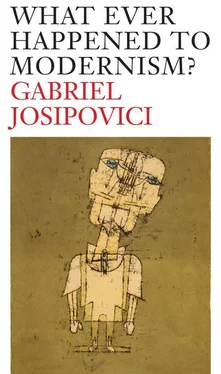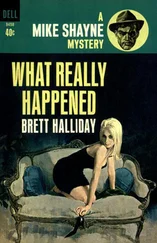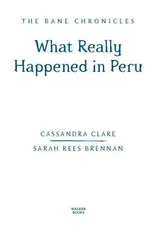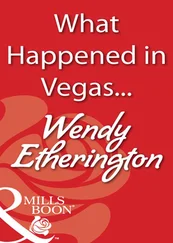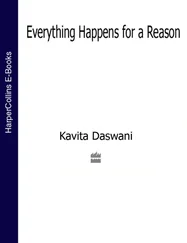‘Well, clear this out now!’ said the overseer, and they buried the hunger artist, straw and all. Into the cage they put a young panther. Even the most insensitive felt it refreshing to see this wild creature leaping around the cage that had so long been dreary … His noble body, furnished almost to bursting point with all that it needed, seemed to carry freedom around with it too; somewhere in his jaws it seemed to lurk; and the joy of life streamed with such ardent passion from his throat that for the onlookers it was not easy to stand the shock of it.
Clearly what we might call the threshold of boredom is different for different people. For Duchamp the very thought of painting became a horror. And when Stieglitz asked him in 1922 for his views on photography, no doubt expecting support from his new ally, Duchamp replied, in very Beckettian style: ‘Dear Stieglitz, Even a few words I don't feel like writing. You know exactly how I feel about photography. I would like to see it make people despise painting until something else will make photography unbearable. There we are. Affectueusement, Marcel Duchamp.’ For Jarry, Ionesco and Beckett, the idea of having people on a stage pretend to be ‘characters’ embroiled in a ‘plot’ is something they cannot countenance. They have to make it clear from the start that what they are doing is completely ridiculous, preposterous in fact, and they find different ways of doing so and then of filling up the length of time an audience expects to sit in a theatre. Jarry turns to Grand Guignol for his inspiration and starts his play with the one word nobody had ever thought to utter on stage: ‘Merde!’ (Ubu actually says ‘merdre’, which adds an element of wit to the scatological humour); Ionesco discovers that he can use a manual for learning English to determine the nature of the characters and what they say to each other; Beckett that he can fill the time by having two characterless characters talk about how they are filling in the time. Pinter and Bernhard, on the other hand, seem able to put on stage characters who are at least recognisable, even if extreme, and to abide by the conventions of realism even if they strain them at every turn. In fact seeing how far these artistic conventions (which mesh of course with the conventions by which bourgeois society lives) can be strained, becomes part of what drives their dramaturgy. In fiction Beckett again, from Molloy onwards, finds himself compelled to do away with most of the trappings of the novel, while Nabokov seems able and happy to work within them. In all these cases the borders of what they ‘prefer not to’ do are slightly different, and in every instance, one feels, it is not the mind that decides, but — one almost wants to say — the body.
Is the threshold even constant for the lifetime of an artist? One can see a poet like Eliot or a playwright like Stoppard moving from a fairly radical to a relatively moderate approach and style as they grow older — and are we sure that what we are witnessing is a decline? What is certain is the truth of Barthes' remark that ‘to be modern is to know that which is not possible any more’. And this suggests that Modernism is, historically, deeply intertwined with the emergence of a critical conscience. This is as true of Rabelais and Cervantes in the Renaissance as it is of Wordsworth, Mallarmé and Eliot. And is the Preface to the Lyrical Ballads not the first avant-garde manifesto in Western cultural history? ‘They who have been accustomed to the gaudiness and inane phraseology of many modern writers’, writes Wordsworth, ‘if they persist in reading this book to its conclusion, will, no doubt, frequently have to struggle with feelings of strangeness and awkwardness: they will look round for poetry, and will be induced to inquire by what species of courtesy these attempts can be permitted to assume that title.’ Eliot could have said the same thing about his first volume of poetry, and we have seen Evelyn Waugh's response to Picasso: ‘Very interesting, no doubt, but not art.’
I recently shared a platform with an eminent English novelist with a passion for art, who amused the audience by telling them that Mondrian felt he could not make any diagonal lines. ‘I feel there are no limits’, she said. ‘Why should we not make diagonal lines if we want to?’ This sounds like an admirable sentiment, a robust assertion of artistic independence. But if we look into the case of Mondrian, his denial is clearly not a kowtowing to the unspoken rules of society, but comes from some deep impulse within the artist himself. Mondrian's search was, from the start, not for beauty but for truth. He gravitated towards the grid because the grid implies that pictures have no beginnings and no ends, and no heroic or bucolic drama either, unless it is a factitious one introduced by the artist. He wanted to escape from such arbitrariness and at the same time to acknowledge the human and physical dimension of painting. As one of his most perceptive critics, Yve-Alain Bois, has remarked: ‘The essential argument in Mondrian's famous critique of Theo van Doesberg's use of oblique lines [is that it] presupposes, according to Mondrian, an eye liberated from the human body: neoplasticism is “the true and pure manifestation of cosmic equilibrium from which, as human beings, we cannot separate ourselves”.’ One can disagree with the premise, as one can disagree with this or that pronouncement of Beckett or Bernhard, but what one cannot do is dismiss what they are doing, or rather what they refuse to do, as merely cranky, like only eating nuts.
Francis Bacon explained to David Sylvester that what he was trying to do was to get away from the anecdote and make his paintings more immediate.
How many poems he denied himself
In his observant progress, lesser things
Than the relentless contact he desired
we remember Wallace Stevens's Comedian saying. Perhaps in the end it is the search for this ‘relentless contact’ that explains what makes all these artists feel that there are things they cannot do, things that bore them beyond endurance — from Rabelais to Picasso and from Cervantes to Schoenberg. What they want is to make something that will be as alive as the world they inhabit, something that, in Barthes' words, possesses ‘the trembling of existence ( le tremblement de l'existence )’; they are made sick by the thought that all the tradition seems to offer them is, instead, ‘a world which is constructed, elaborated, detached’, a world in which everything has its place, in which everything, even the most terrible, has ‘a peaceful look, an air of respectful decency, which comes of their being held beneath a gaze fixed at infinity,’ as Merleau-Ponty put it. Sometimes they feel that the way to escape this, to experience that relentless contact, is through a torrent of words and invective, as in Beckett or Bernhard. Sometimes they try to do it by a sly subversion of what is expected, as when Eliot fills the empty form of the quatrain, so popular with the Georgians, with vocabulary far from Georgian, and in doing so brings the nonsense verse of Lear and Carroll back into the mainstream of poetry:
The broad-backed hippopotamus
Rests on his belly in the mud;
Although he seems so firm to us
He is merely flesh and blood.
Or as when Queneau begins Zazie dans le métro with a word we have to say out loud in order to make sense of it: ‘Doukipudonktan’ (roughly: ‘Where's this stink coming from?’).
In the end we have to remember that Bartleby's is an extreme case, or rather, that both the novella, Bartleby , and the short story, ‘The Hunger Artist’, while needing to be taken very seriously, are fictions, ways in which their respective authors manage (as great artists always do) to have their cake and eat it (we saw this at work already in Cervantes' Prologue to Don Quixote ). My point is that certain ways of writing or painting or composing ‘are not possible any more’ because they are worn out, thin, lacking in interest, as well as because there are certain things we are not capable of doing any more. In one of the brief passages which go to make up his posthumous book, On Certainty , Wittgenstein says: ‘Certain events would put me into a position in which I could not go on with the old language-game any further. In which I was torn away from the sureness of the game. Indeed, doesn't it seem obvious that the possibility of a language-game is conditioned by certain facts?’ This sounds wonderfully clear. The old language-game cannot be played any more because the circumstances have changed, and those who are not aware of this are the enemies of true thought. But that does not stop Wittgenstein, in this so typical of the greatest Modernists, struggling, in the Preface to the Philosophical Investigations , with the conundrum of whether he has written the series of fragments which follow because he is, whether through personal weakness or because of the temper of the times, not up to writing the kind of large, coherent argument which came naturally to Locke or Kant, or whether he wrote it as a series of fragments because that is precisely what the argument he was trying to put forward demanded . Sometimes he thinks it is the one, sometimes the other. There is no-one to tell him which is right. All he knows is that he, being who he is, could have done it in no other way.
Читать дальше
